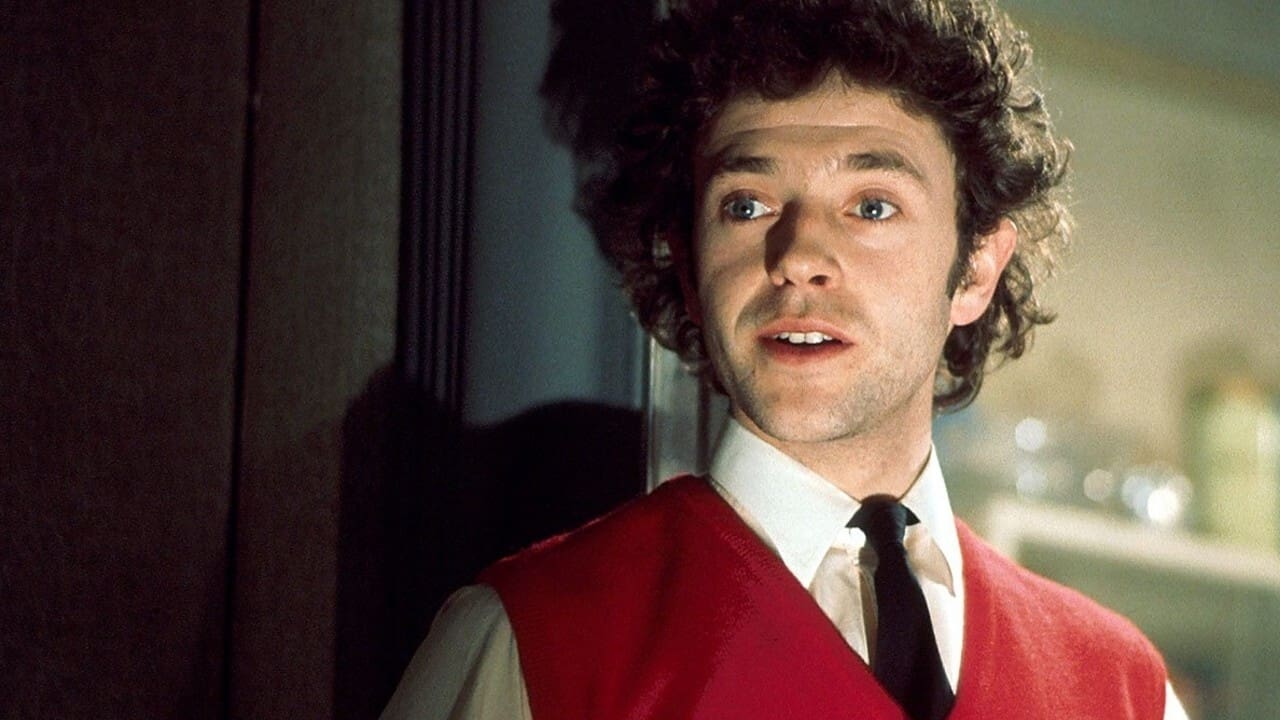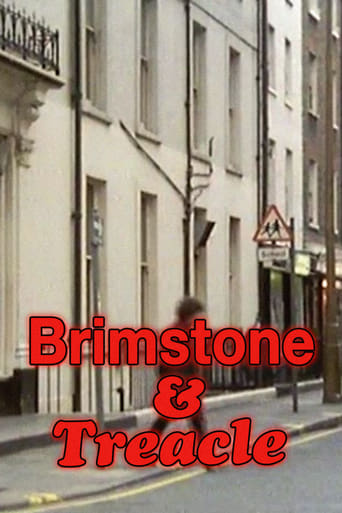

Dennis Potter was a unique and profound talent who wrote many great pieces of work for television. His work was entertaining, witty, satirical, innovative and challenging for both viewers and those involved in the television industry. Brimstone and Treacle is perhaps the most difficult piece he wrote which is reflected in the fact that the BBC banned it for 11 years. I recently watched it again and I found it to be as fresh and as shocking as ever. Viewed in the light of what British TV has become in the last 10 years it was particularly refreshing to be reminded of the quality it was once world famous for.I really can't speak highly enough of this remarkable work. Firstly there are the superb performances of the three main leads. Michael Kitchen is breath taking to watch and Denholm Elliot was in his element playing a sleazy little man racked with guilt. Patricia Lawrence was also perfect as the downtrodden "mumsy". Dennis Potter's script was perfect and gave them wonderful lines. The story is disturbing and sick but at the same time incredibly funny. I couldn't help laugh at the demented sight of Michael Kitchen wheeling the mentally handicapped Patty around the living room before having his way with her. There was also what were at the time very innovative uses of lighting and camera which are still highly effective even today. There is also the Dennis Potter trade mark use of music.What really offended people about this play, apart from the fact a mentally handicapped girl is raped, is a that demon comes into the lives of three people in a desperate situation and turns out to be their saviour. Not that he intended to or could care less about them but through his actions he saves Patty from her terrible state and frees "mumsy" from both the tyranny of her husband and having to look after Patty. The only one who comes worse is the father who as it turns out is the truly guilty one.Early in the play a quote from Kierkegaard is shown on the screen, "There resides infinitely more good in the demonic than in a trivial man". Tom, Denholm Elliot's character, may not be evil but he is sentimental, dishonest, cowardly and racist. He has no real good in him and no real bad in him. He's an ineffective and frustrated little man and lacks the courage and conviction to be good or bad. This is why he is trivial. Martin, Michael Kitchen's character, is a thoroughly wicked demon but is far from trivial and lives a remarkable life. Perhaps the message from this is that it is better to be who you are with total conviction whether that is good or evil than to live a crippled pointless life in which you are neither.However the exact meaning and message of this play could be debated for years and that is, at least in part, what makes a truly great and profound piece of work.
... View MoreThis film originated in a play with the same name written in 1976 by Dennis Potter for the TV series 'Play for Today', produced in the U.K. by the BBC. Its theme is straight black Gothic horror, and before the production was aired the BBC decided that it would be too shocking for many of its likely audience, so it was mothballed. Ultimately this TV presentation was not aired until 1987. (I have been told that there was an earlier public release in the form of a stage presentation, but I have been unable to confirm this). Long before this, Dennis Potter rewrote the play for the cinema and the film version was released in 1982. Basically the story is the same, but the film provides a little more fluidity than the play in which the action takes place almost entirely in one room. There is however one important difference, which can be discussed without creating a spoiler as it relates to a scene that Dennis Potter deleted from the play when creating his film script. The cast of the play features a typical suburban middle class family, comprising parents with an adult but paralysed and brain damaged daughter, who receive an unexpected visitor claiming to be a former friend of the daughter. I understand an early scene in the play showed the daughter becoming paralysed by a road accident when she ran out of her home in horror after finding her father having sex with her best friend. This immediately created layers of guilt which were quite significant in the TV play, but which the author decided to minimise in the screen version where the only reference to the accident comes later in the story as part of a dream sequence experienced by the father. The story evolves around the visitor, Martin - a part played in the film by "Sting"; who was formerly a soloist with "The Police" (the group responsible for most of the sound tracks associated with the film), but who has now established an independent reputation as a film actor. At first Martin provides friendly and helpful support for the family but later, and seemingly innocently, he opens up troubles and problems which had been papered over, and thoroughly disrupts the normal tenure of the family's life. The dialogue is effective sharp and pointed, and the film, which is quite short, rapidly progresses to its final horrendous climax.Ultimately the message is religious; but whilst the film raises plenty of questions, no solutions are offered. The parents consist of a somewhat disillusioned religious publisher, and his wife who shows a deep but simple faith. Their visitors conversation gradually but increasingly disturbs the faith of both of them, as well as that of the woman's club in the couple's church. In the original play hints were given that the mysterious visitor was Satan himself; but in the case of the film it was, probably wisely, decided to remove these; and by the final climax, the viewer is left - according to personal religious convictions - to conclude that the visitor was Satan himself, an ordinary person possessed by the devil, or a naturally evil person behaving in his natural way. The horror of the film is intensified by the fact that nothing in any way supernatural takes place, we are just observing a segment of ordinary human life. Ultimately this becomes a very rewarding but deeply disturbing film to watch.Those interested in comparing the film with the original play may wish to note that both may be more readily available in PAL format from the U.K. - its country of origin. DVD's of the film are currently listed there, and I believe that a BBC videotape of the televised play, released following its eventual screening, is also available.
... View MoreMy wife and I saw _Brimstone and Treacle_ at the Potter retrospective held in Boston a couple of years ago; we were discussing its implications for days afterward. Like much of Potter's work, it shows how good television can be when put in the right hands. Provocative and at times disturbing, it uses the devices of a moral fable to question our common-sense idea of moral judgment. A mysterious young man (Michael Kitchen) insinuates himself into the household of an unhappy suburban couple whose life centers around caring for their paralyzed and mute grown daughter. He has a plan for these people, and in the implementing of it he crosses the line into the unethical and the criminal. Yet we're being asked to look beyond appearances, because Martin is not an ordinary human. There's something demonic about his perverse toying with people -- not to mention his affinity with thunderstorms. As the film reaches its climax, another order of truth is revealed, one that stands our comfortable certainties about right and wrong on their heads.
... View MoreThis Denis Potter TV play was banned for about 15 years in the UK and was only shown for the first time recently. In the interim it was made into a film with a different cast.Potter begins with the proposal that there is more good in some people who appear to be bad than there is in some people who pretend to be good.A young woman has been brain damaged in a car accident and is bed ridden. She cannot communicate or feed herself. Her mother looks after her 24 hours a day. On day a demon in human form visits her house and ingratiates himself into the family. When alone with the girl he rapes her and then.....see for yourself.The play is disturbing but to educated people it raises interesting moral issues. It could act as a good catalyst for a discussion session in an evangelistic church and would raise some strong feelings.
... View More